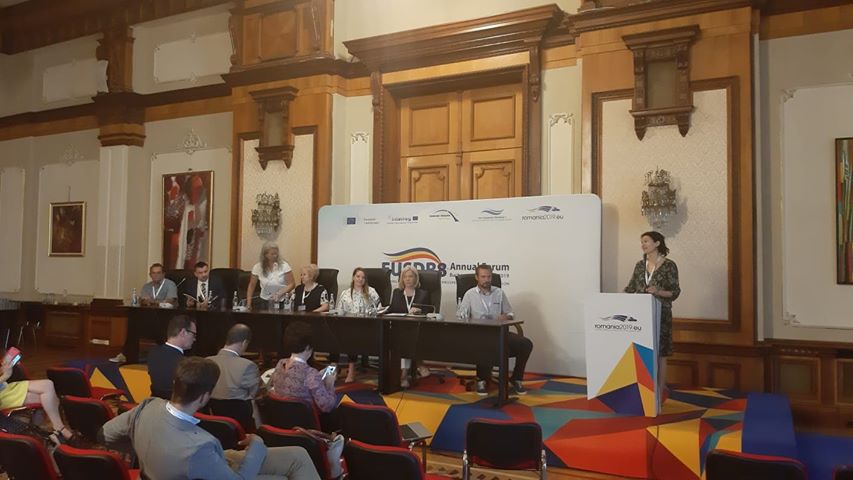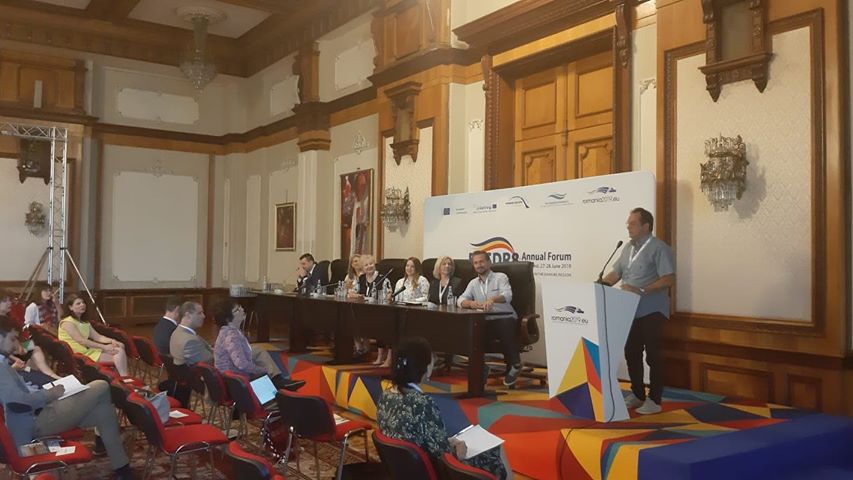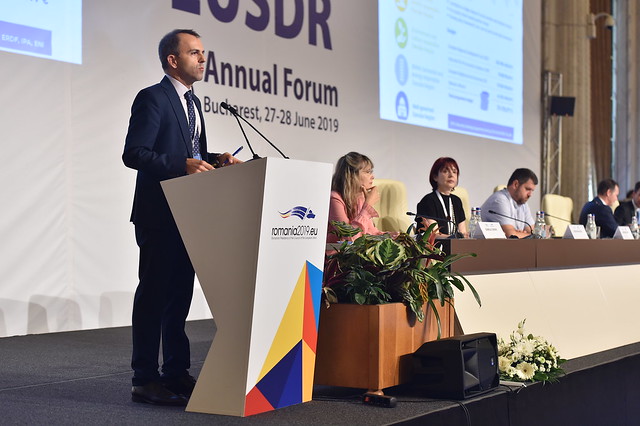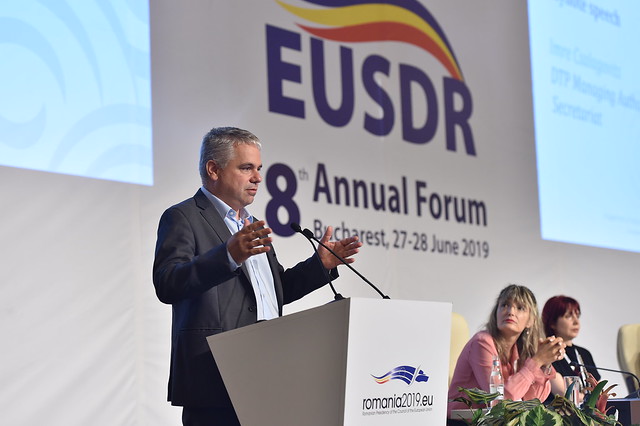EUSDR ANNUAL FORUM 2019
01-08-2019
Bucharest, Romania- The DTP co-organised and actively partcipated to the 8th Annual Forum of the European Union Strategy for the Danube region (27th and 28th of June), where the Programme, holding two stands in the exhibition area, had the chance of disseminating its outcomes and achievements. The stands in fact were related not only to the Programme itself, but also to the DTP projects.The Pole leaders of the DTP Capitalisation Strategy and some DTP project representatives joined the stand and gave relevant information about the projects to the visitors.


The DTP also organised a side event on its Capitalisation Strategy which was divided in two sessions related to the EUSDR Priority Area 1 (Water ways and Rail- Road Air Mobility) and to the other modes of transport and sustainable mobility:
- The first part concerned PA1a (Inland waterway transport), presenting the results of the Danube Skills, GRENDEL, GREEN DANUBE, DAPhNE, DANTE and Danube STREAM projects, their contribution to the achievement of PA1a targets, synergies with other projects in the same field but also plans for capitalisation.
- The second session, with the presentation of the RADAR , Transdanube.Pearls, TRANSGREEN, LinkingDanube and eGUTS projects, related to the PA1b (Rail- Road Air Mobility) and their relations with Sustainable Mobility also covered the role of the capitalisation inside but also outside the context of a financing programme.


The last day of the Forum started with the DTP pleanry session: The present and future roles of the Danube Transnational Programme in the Danube Region whose aim was to provide a general but comprehensive overview on the Programme and projects' achievements and their role in supporting the development of the Danube Region. At the beginning of the session, an expert on territorial analysis focused his introductory presentation on the Programme regional coverage, providing a geographical overview to the Danube territory as well as its main challenges and needs. The second keynote speech presentated how the DTP is contributing to a better Danube region, why to continue the transnational cooperation in the area and in which way to shape the future programme.
The second part of the session provided insights on the joint activities carried out by some Thematic Poles of the DTP Capitalisation Strategy: Pole 1, Pole 5 and Pole 9. After their interventions, each Pole representative gave the floor to some topic-related projects which presented their successful achievements: Danube S3 Cluster, DANUrB and EDU-LAB. Moreover, in order to support and demonstrate the cross-sectorial cooperation, the floor was given to Danube STREAM and DANUBEparksCONNECTED projects which explained the synergies found between sustainable navigation and the respect of natural heritage.


The Forum is the main EUSDR event and, since 2017, it serves as the main annual event of the Danube Transnational Programme. This year Forum was supported by the motto: Building cohesion for a shared prosperity in the Danube Region. The topics covered this year play a crucial role in the Danube region development, connectivity and regional mobility, the fostering of clusters’ development, research and innovation, digitalization, People to People contacts and tourism. Moreover, in perspective of the EU new Cohesion Policy, the ways to create better synergies between macro-regional strategies and EU programmes were emphasised and discussed.

Downdload the Plenary Session Material Here:
1. Matyas Jaschitz, Central European Service for Cross-Border Initiatives (CESCI)
2. Imre Csalagovits, DTP Managing Authority
3. Eloy Giron Gomez, Overview of the achievements gained by the DTP projects
4. Daniela Chiran,DTP Thematic Pole 1 Leader
5. Gilda Niculescu, Danube S3 Cluster
6. Sebastian Bonis, DTP Thematic Pole 5a Leader
8. Ágnes Sebestyén, DTP Thematic Pole 9 Leader and Wolfgang Schuster EDU - LAB
9. Gert Jan Muilerman, Danube STREAM and Georg Frank DANUBEparksCONNECTED
